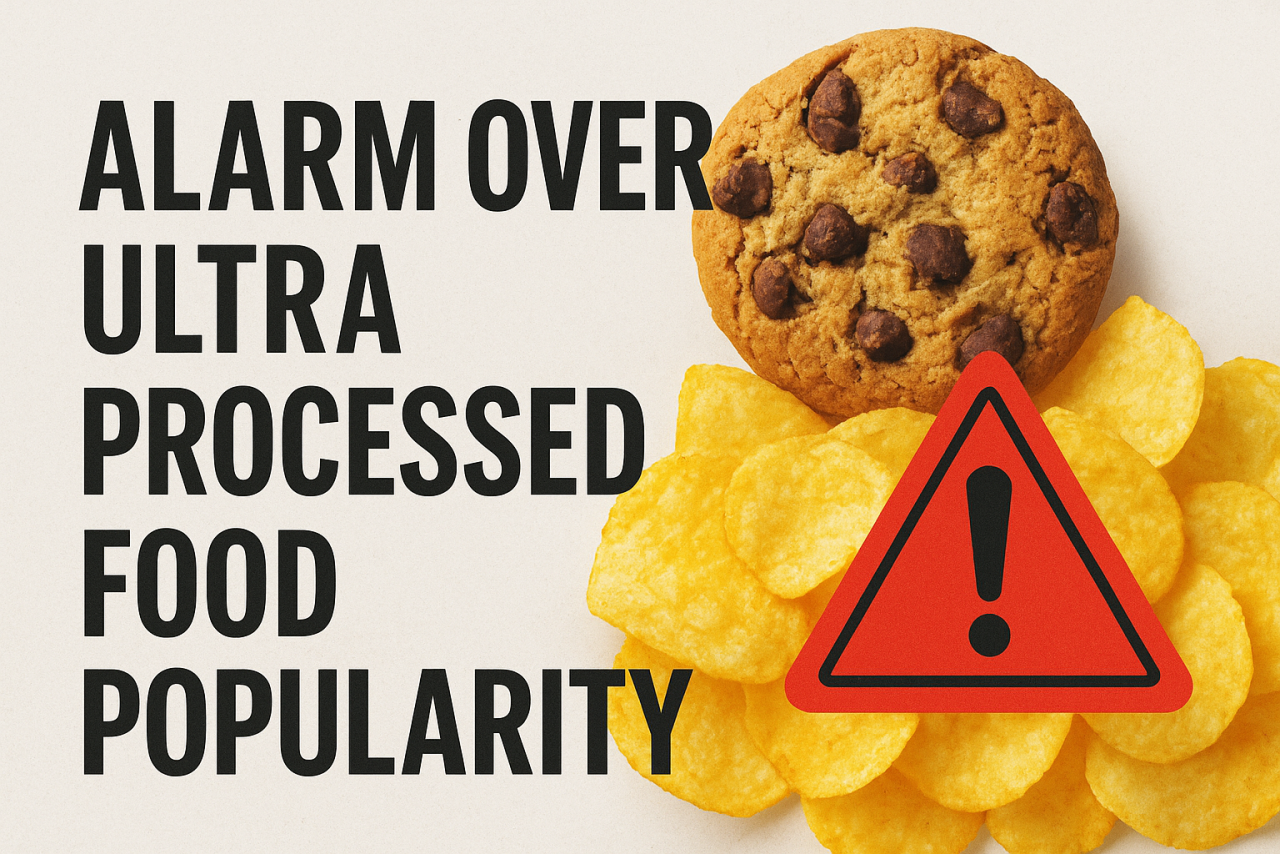
Concerns are increasing around the world about the fast-growing popularity of ultra processed foods. A major international study published in The Lancet has warned that diets filled with these products are strongly linked to several serious health problems. These include type 2 diabetes, obesity, depression, heart conditions and kidney diseases. The findings suggest that ultra processed food consumption is becoming a major public health burden.
Ultra processed foods, often called UPFs, are items that have gone through heavy industrial processing and contain ingredients not usually found in a home kitchen. They include packaged snacks, ready-to-eat meals, soft drinks, processed meats, sugary cereals, instant noodles, and many other similar products. According to the researchers, these products are replacing traditional diets that were based on fresh and minimally processed foods.
The study brought together 43 global food experts, including researchers from the University of Sao Paulo who first introduced the term UPFs in 2009. Their work shows that consumption of these foods has increased sharply in many countries. For example, UPF intake in Canada grew over eight decades from 24 percent to 58 percent of total diet. France saw a rise from 26 percent to 50 percent. Spain reported an increase from 11 percent to 31 percent over two decades, while Korea’s intake jumped from 13 percent to 31 percent. In the United States and Brazil, UPFs account for more than half of daily calorie intake.
India is also moving in the same direction. A study by the Indian Council of Medical Research has shown that packaged food and beverage purchases by Indian households doubled between 2006 and 2020. The study also reported that India’s market for ultra processed foods grew from 3.9 billion dollars in 2006 to 100 billion dollars in 2023. It is expected to double again by 2028.
Experts believe this sharp rise is driven by rapid urbanisation, busy lifestyles and aggressive marketing by food companies. Arun Gupta, a doctor and member of the Nutrition Advocacy in Public Interest group, explained that the shift toward packaged and processed foods is happening much faster than the global average. He believes this could lead to a major health crisis in the coming years.
The Lancet papers warn that diets high in UPFs lead to nutrient imbalances, overeating and weight gain. People consuming these foods often take in too much sugar and salt while missing essential nutrients. Research indicates that a heavy intake of UPFs increases the risk of type 2 diabetes by 25 percent, depression by 23 percent, and cardiovascular diseases by 21 percent. The papers also highlight that many UPFs contain chemical additives and artificial ingredients that may affect hunger and satiety signals, causing people to eat more than necessary.
The food industry’s rapid growth is not only a health issue but also an environmental one. According to the study, global food processing companies have become powerful enough to influence public policy and consumer choices. Their expansion has encouraged a shift away from traditional diets and local food systems. Between 1962 and 2022, industrial food producers supplied large amounts of cheap food products that shaped eating habits around the world.
Experts involved in the study called for urgent policy measures. They suggested stronger regulation of food marketing, clearer labeling rules, limits on harmful additives and public campaigns to raise awareness about healthy diets. They believe that India, which still has a strong tradition of homemade meals and fresh produce, should act now to prevent the situation from becoming irreversible.
Public health specialists emphasised that India cannot afford to ignore this problem. They noted that lifestyle diseases such as diabetes are already rising at an alarming pace in the country. If diets continue to shift toward ultra processed foods, the burden of disease will grow even heavier.
The research team urged governments to take firm steps to protect public health. They recommended actions similar to those used in controlling tobacco consumption. These include taxation, restrictions on advertising and support for healthier food alternatives.
The study serves as a reminder that the foods people choose every day can shape long-term health. It calls for renewed attention to fresh, traditional and nutrient-rich diets before the growing dependence on ultra processed foods becomes too deep to reverse.





















